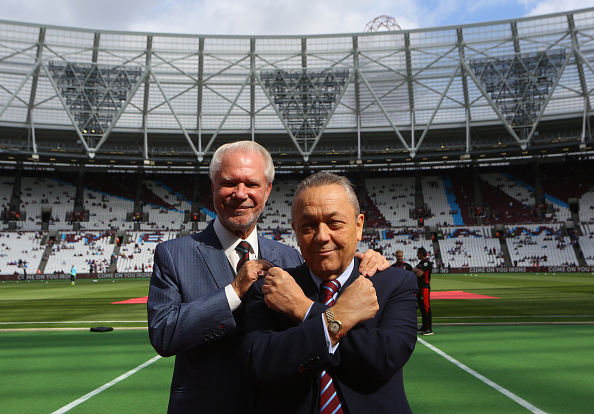Breaking News: West Ham United Sale Announced as David Sullivan and Partners Agree to Sell Club to Leicester City for €2.57 Billion
In a stunning development that has sent shockwaves through the Premier League and football world at large, West Ham United’s ownership group, led by co-chairman David Sullivan, has officially announced the sale of the club to Leicester City for a record-breaking €2.57 billion. The move marks one of the most significant transactions in English football history and signals a new era for both clubs.
**The Sale Details and Financial Implications**
After months of speculation and negotiations, the deal was finalized earlier today, with Leicester City emerging as the new owners of West Ham United. The transaction is valued at €2.57 billion, making it one of the highest-valued club sales in the sport’s history. The staggering sum underlines the immense commercial value and global appeal of Premier League clubs, especially amid a rapidly evolving football economy driven by broadcasting rights, sponsorship, and global fan engagement.
Leicester City, a club renowned for their fairy-tale Premier League title win in 2016, is now stepping into a new chapter with a vastly expanded portfolio. The funds from the sale are expected to be utilized by Sullivan and his partners to settle debts, invest in other ventures, and perhaps explore opportunities within the football industry or beyond.
**Reasons Behind the Sale**
Sources close to the deal cite multiple factors prompting Sullivan and his partners to part ways with West Ham United. Among these are financial pressures, the desire for diversification, and a strategic shift toward other investment avenues. The COVID-19 pandemic had a lasting impact on football finances, affecting matchday revenue and commercial income, which may have contributed to the decision.
Furthermore, Sullivan, who has been at the helm of West Ham since 2010, has expressed a desire to step back from the day-to-day running of the club. The owner’s focus on personal projects, along with the increasing costs associated with competing at the highest levels, has led him to seek a sale to a buyer with substantial resources and ambition.
**Leicester City’s Ambitions and Plans**
Leicester City’s ownership, which historically has been more modest compared to their London counterparts, now faces the challenge of elevating West Ham to new heights. The club has expressed enthusiasm about the acquisition, emphasizing their commitment to investing in the squad, infrastructure, and community programs.
Leicester’s chairman, Aiyawatt Srivaddhanaprabha, stated, “We are delighted to acquire West Ham United. Our goal is to build on the club’s proud history, strengthen the squad, and compete at the highest levels of English and European football. This is a historic moment for us, and we look forward to a promising future.”
**Potential Impact on West Ham United**
Fans and analysts are keenly watching to see how this transition impacts West Ham’s performance. Historically, ownership changes can lead to shifts in club culture, investment strategies, and long-term planning. The new ownership’s willingness to invest heavily could see West Ham challenge for European qualification spots and possibly contend for domestic trophies in the coming seasons.
Moreover, the club’s strategic focus may shift towards expanding its global brand, leveraging the financial muscle of Leicester City’s ownership to attract top players and managers.
**The Broader Context in Football**
This sale exemplifies a broader trend of increasing financial muscle among Premier League clubs. With the league’s lucrative broadcasting deals and global reach, club valuations continue to soar. The €2.57 billion price tag reflects not only West Ham’s sporting potential but also the club’s commercial assets, stadium facilities, and worldwide fan base.
It also raises questions about the future landscape of English football, where ownership groups are increasingly motivated by lucrative investments, media rights, and global branding opportunities.
**Community and Fan Reactions**
Reactions from fans are mixed. West Ham supporters have expressed concern over the change in ownership, fearing that the club’s identity and traditions might be compromised. Others are hopeful that the new investment will lead to improved performances and better facilities.
Leicester City fans, meanwhile, are excited about their club’s expanded influence and the prospect of competing at a higher level in both domestic and European competitions.
**Conclusion**
The sale of West Ham United to Leicester City for €2.57 billion marks a watershed moment in football history. It underscores the escalating financial stakes involved in the sport and highlights the shifting landscape of club ownership. As both clubs prepare for their next chapters, fans and stakeholders alike will be watching closely to see how this historic transaction shapes the future of English football.


